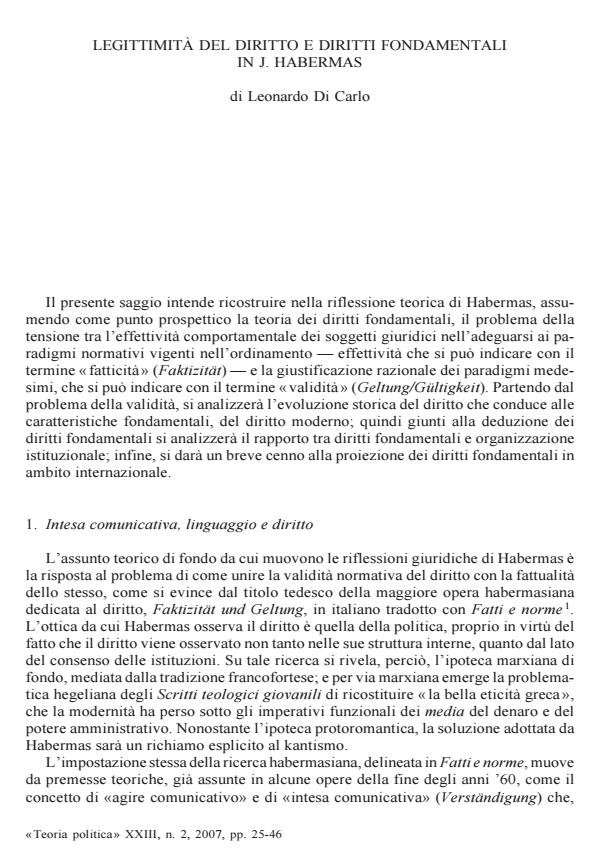Legittimità del diritto e diritti fondamentali in J. Habermas
Journal title TEORIA POLITICA
Author/s Leonardo Di Carlo
Publishing Year 2007 Issue 2007/2
Language Italian Pages 22 P. 25-46 File size 348 KB
DOI
DOI is like a bar code for intellectual property: to have more infomation
click here
Below, you can see the article first page
If you want to buy this article in PDF format, you can do it, following the instructions to buy download credits

FrancoAngeli is member of Publishers International Linking Association, Inc (PILA), a not-for-profit association which run the CrossRef service enabling links to and from online scholarly content.
This article presents a reconstruction of the theme of basic rights in Habermas’s philosophy in the light of the concept of « Communicative Action ». The need for basic rights is rooted in a double necessity presented by modern legal orders which, on the one hand, are devoid of the legitimacy that drives the individual to respect the laws; on the other hand, they are expressions of differentiated and complex societies which lack social integration. Basic rights satisfy both needs, giving legitimacy to both legal orders and social integration in the community. In referring to Kant and Rousseau, Habermas proposes a logical genesis of basic rights, which is expressed in the internal relation between rights of freedom and social rights. This internal relation has a double meaning with respect to Communicative Action: it was born out of intersubjective discourse and is functional to the reaching of an agreement. Habermas does not stop at the logical foundations, but shows the necessity of applying them to an institutional context. From here the need to submit to the D principle of democracy also in institutional bodies such as parliament, administrative bodies and the courts.
Leonardo Di Carlo, Legittimità del diritto e diritti fondamentali in J. Habermas in "TEORIA POLITICA" 2/2007, pp 25-46, DOI: